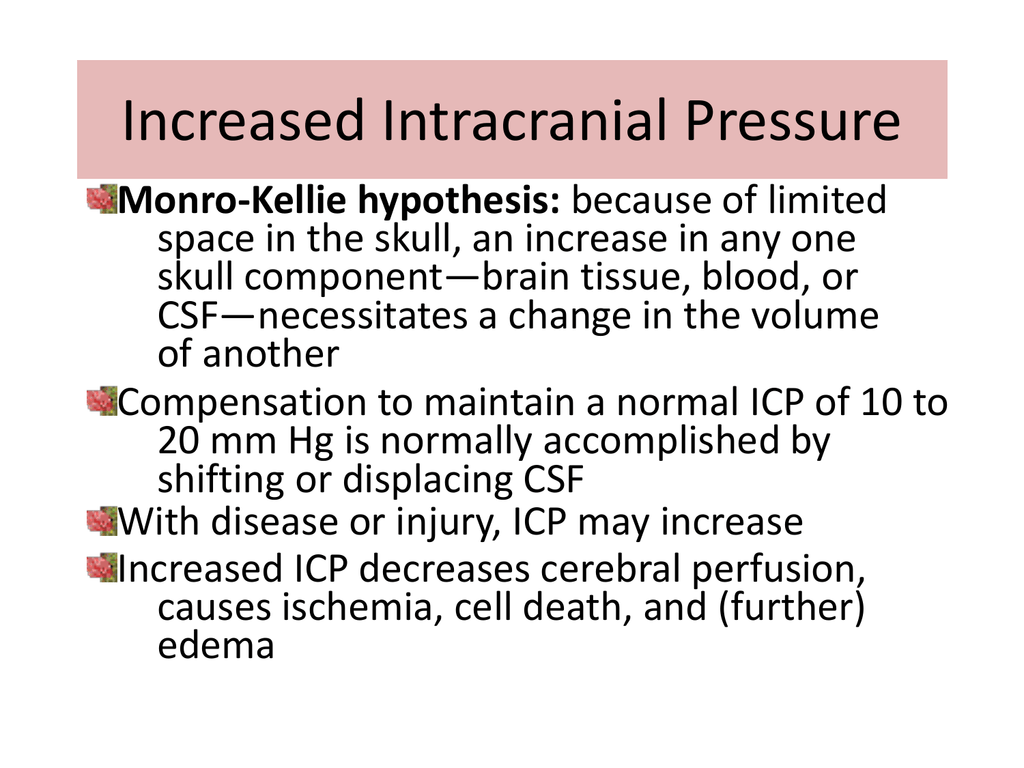
Increased Intracranial Pressure Early Signs. The symptoms and signs of raised intracranial pressure are often non specific and insidious in onset. Breathing is uneven inconsistent there are constant attempts to take a deep breath. Know more symptoms and treatments here. A sudden increase in the pressure inside a person s skull is a medical emergency.

Increased icp in infants can be the result of injury such as falling off a bed or it can be a sign of child abuse known as shaken baby syndrome a condition. A sudden increase in the pressure inside a person s skull is a medical emergency. Signs of increased icp in infants. Consideration must be given to determine if the symptoms a patient is displaying can be attributed to another condition such as a stroke or if they are a consequence of increased icp. The very first signs of an increase in cranial pressure are determined by drowsiness bouts of yawning twitching of hands and feet. Early signs are a gradual dilation a slightly ovoid shape and a sluggish response to light ipsilateral to the lesion motor weakness and sensory deficits.
Consideration must be given to determine if the symptoms a patient is displaying can be attributed to another condition such as a stroke or if they are a consequence of increased icp.
Signs of increased icp in infants. Left untreated an increase in the intracranial pressure icp may lead to brain injury seizure coma stroke or. The very first signs of an increase in cranial pressure are determined by drowsiness bouts of yawning twitching of hands and feet. Functional signs of the forming papillary oedema and central eye movement disorders may be predictors of increasing intracranial pressure. A sudden increase in the pressure inside a person s skull is a medical emergency. The signs of increased icp include.